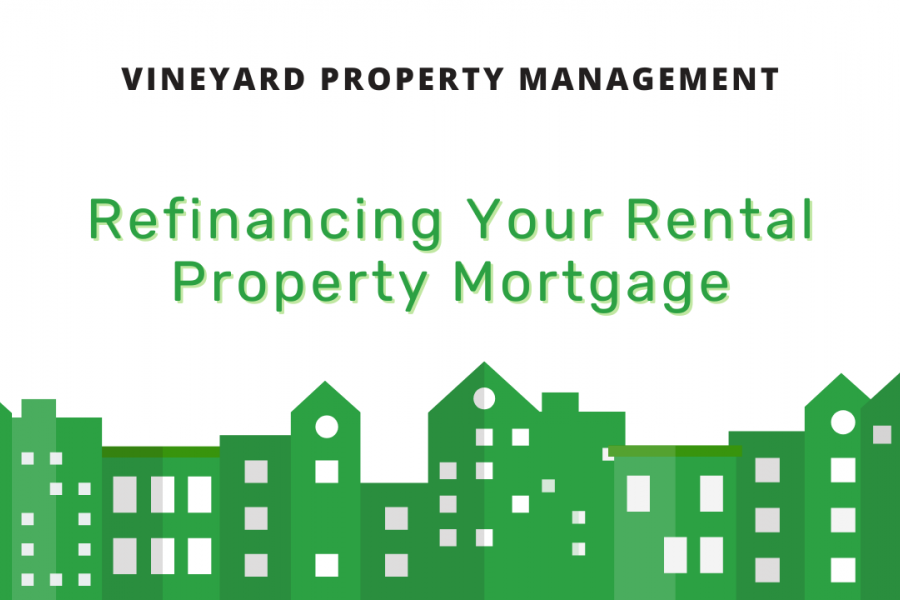
Key Takeaways
- For property investors, growing wealth is a common priority.
- One common strategy investors can utilize is rental property refinancing.
- A property management company can assist with financial challenges and streamline rental operations.
For real estate investors keen on making a big success of their investments, two key objectives must always be dominant in their minds. They have to be laser-focused on how to make as much money as possible from their assets with the least investment of time, effort, and money.
To do this, new and growing property investors don’t have to reinvent the wheel. They just need to acquaint themselves with and master the same strategies that successful property investors have used to navigate their way to mega-success. Today, we discuss one such strategy: rental property refinancing.
What is rental property refinancing? Why do savvy investors use this option? What are the benefits of refinancing a rental property, and why should this be one of the tools in your toolkit of strategies for maximizing returns on an investment property? Read this guide by Vineyard Property Management today to learn more.
Learn how we can help you maximize your home’s potential.
What Is Rental Property Refinancing?
In simple terms, rental property refinancing means to pay off the existing mortgage on your rental property with a new loan. Typically, this new loan will offer better repayment terms and maybe features that are not available with the old one.
When property investors refinance a rental, it is often to escape unfavorable loan repayment terms, free up cash to renovate an existing rental, or finance a new property. This option means investors don’t have to be stuck with a loan if the conditions of that loan limit their growth.

Why Refinance A Rental Property?
To Lower The Interest Rate On A Mortgage
Interest rates change all the time, but if you are locked into a fixed-term loan, you can’t take advantage of the available lower rates. By refinancing their mortgage, an investor locked into an existing loan with exorbitant rates can save a lot of money. For instance, on a $300,000 mortgage, a 0.25% drop in interest rates will result in savings of $480 a year. Without the option to refinance the property, the investor must accept the high interest rates.
Shorten The Loan Repayment Time
Most rental property loans come with a 30-year term. Although a longer repayment period means lower monthly payments, it also means that investors pay a lot more money at the end of the 30 years. If an investor could shorten the repayment period from 30 years to 20 years, their monthly payments would be higher, but they would save a lot of money. As an example, by shortening the repayment period on a $300,000 loan from 30 years to 20 years, an investor could save more than $80,000.
To Cash Out On Equity
Equity refers to an investor’s stake in their property, calculated by deducting the outstanding debt from the value of the asset. Property investors can convert this money into cash when they refinance their rental property. This money may then be used to finance a new property, pay off debts, renovate the existing rental, or be redirected into any use the investor chooses.

Improve Cash Flow
If high mortgage payments are stifling cash flow by eating up significant portions of the monthly income, investors can refinance their rental property to fix this problem. This step opens up their cash flow, freeing up more money to invest in other areas of the rental’s operation, or the investor can simply pocket the excess cash as their monthly profit.
Learn how we can help you maximize your home’s potential.
How To Refinance A Rental Property
To refinance your rental property, here is what you need to know and do:
Lender’s Criteria For Rental Property Refinancing
- Good credit: You are not guaranteed a lower interest rate on your new loan, even if the lender offers loans with this lower rate. To qualify for lower rates, you must meet the credit score requirements. Most lenders set a minimum credit score of 620. But for the most favorable loan terms, you need a score of 670 - 800.
- Loan-to-value ratio: Investment property loans carry a greater risk than residential mortgages, because borrowers will default on a rental property loan before their home mortgage. For this reason, lenders require a loan-to-value ratio of 75% to refinance a rental property. You must have a minimum equity of 25% in the property.
- Eligible income: Depending on the lender, you may or may not use income from your rental as part of this criterion. In addition to showing proof of income and sources for that income, lenders expect you to hold six months of mortgage payments as cash reserves for when the rental is vacant.
- Debt-to-income ratio: This looks at how much of your monthly income goes into loan repayments. It is calculated by dividing your total monthly debt obligations by your gross monthly income. This ratio should not be more than 50%. DTI ensures that you have enough wiggle room in your finances to meet your new debt obligations.

List Of Required Documents For Rental Property Refinancing
- Proof of income, such as pay stubs and bank statements, plus W-2 forms, if employed.
- Two years of personal tax returns, with details of rental income and expenses
- The current lease and rent roll for the rental, with details of each tenant's payments
- Financial statement for the rental property to be refinanced
- Account statements showing proof of sufficient funds held in reserve
- Proof of homeowners insurance and title insurance for the rental
The Steps To Refinancing A Rental Property
- Collect and organize the required paperwork. Ensure there are no missing or outdated documents
- Submit your application and wait for the lender’s response. The next steps will depend on the response.
- If you receive an offer, compare the terms to quotes from other lenders.
- If happy with the terms, lock in the interest rate. Find out how long the rate lock lasts so you can wrap up the process before the expiration.
- Wait for underwriting. This begins as soon as the lender accepts your application and should last no more than one week.
- Close on the loan. Usually, the lender will go over the contract with you, you will pay the closing costs, and the refinancing loan becomes official.
This entire process takes around 45 days from start to finish.
Bottom Line
If rental property refinancing looks like something you would like to explore as a way to increase the profit potential of your income property, and you want more information on this process, we would be most happy to talk with you. Call the professional team at Vineyard Property Management today!
